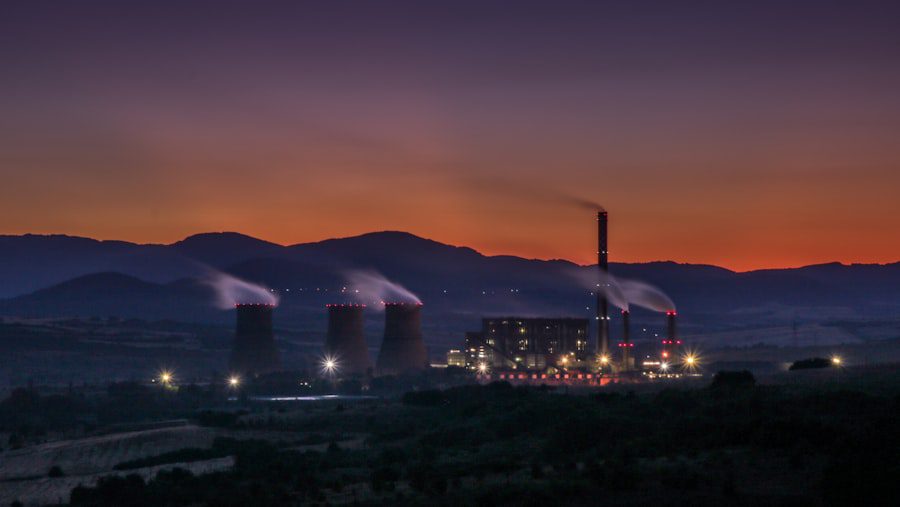Green fuel, also known as renewable fuel, is a type of fuel produced from sustainable and renewable feedstock, such as plant-based materials, agricultural waste, and algae. Unlike traditional fossil fuels, green fuel is considered more environmentally friendly and sustainable, as it produces lower greenhouse gas emissions and reduces dependence on finite resources. Green fuel can be used in various applications, including transportation, electricity generation, and heating.
The production and use of green fuel are seen as a key strategy in reducing carbon emissions and mitigating the impacts of climate change. Green fuel can be produced through various processes, including biofuel production, hydrogen fuel production, and synthetic fuel production. Biofuels are derived from organic materials such as corn, sugarcane, and soybeans, while hydrogen fuel is produced through the electrolysis of water or the reforming of natural gas.
Synthetic fuels are produced through the chemical conversion of biomass or waste materials. These processes offer a sustainable alternative to traditional fossil fuels and have the potential to significantly reduce carbon emissions and environmental impact. As the demand for sustainable energy sources continues to grow, green fuel production is becoming an increasingly important area of research and development.
Key Takeaways
- Green fuel is a sustainable alternative to traditional fossil fuels, derived from renewable feedstock and produced using innovative technologies.
- Sustainable feedstock for green fuel production includes biomass, algae, and waste materials, reducing reliance on finite resources and minimizing environmental impact.
- Innovative production technologies such as bio-refineries and advanced conversion processes are key to maximizing the efficiency and sustainability of green fuel production.
- Green fuel offers environmental benefits such as reduced greenhouse gas emissions, improved air quality, and decreased dependence on non-renewable resources.
- The economic viability of green fuel production is increasing with advancements in technology, government incentives, and growing consumer demand for sustainable energy solutions.
Sustainable Feedstock for Green Fuel Production
Common Sustainable Feedstocks
Common feedstock for green fuel production includes agricultural crops, such as corn, sugarcane, and soybeans, as well as non-food crops like switchgrass and algae. These feedstocks are considered sustainable because they can be grown and harvested on a continuous basis without depleting natural resources or causing environmental harm.
Waste Materials as Feedstock
Additionally, waste materials from agriculture, forestry, and food production can also be used as feedstock for green fuel production, further enhancing the sustainability of the process.
Algae: A Promising Feedstock
Algae is a particularly promising feedstock for green fuel production due to its high oil content and rapid growth rate. Algae can be cultivated in a variety of environments, including ponds, bioreactors, and open water systems, making it a versatile and scalable feedstock for green fuel production. Additionally, algae cultivation does not compete with food production or require arable land, making it an attractive option for sustainable fuel production. Overall, the use of sustainable feedstock is essential for ensuring the environmental sustainability of green fuel production and reducing the reliance on finite resources.
Innovative Production Technologies for Green Fuel

Innovative production technologies play a crucial role in the advancement of green fuel production, enabling more efficient and sustainable processes. One such technology is the use of advanced biofuel production methods, such as enzymatic hydrolysis and fermentation, which allow for the conversion of biomass into biofuels with higher yields and lower energy inputs. Additionally, the development of advanced catalysts and reactors for hydrogen fuel production has the potential to improve the efficiency and cost-effectiveness of hydrogen fuel as a green energy source.
Another innovative technology for green fuel production is the use of synthetic biology to engineer microorganisms for the production of biofuels and biochemicals. By modifying the genetic makeup of microorganisms, researchers can enhance their ability to convert feedstock into valuable products, such as ethanol and biodiesel. This approach has the potential to revolutionize green fuel production by enabling the use of non-food feedstock and increasing the overall efficiency of the process.
Overall, innovative production technologies are essential for advancing green fuel production and making it a more viable and sustainable energy source.
Environmental Benefits of Green Fuel
| Environmental Benefits of Green Fuel |
|---|
| Reduction in greenhouse gas emissions |
| Decrease in air pollution |
| Conservation of natural resources |
| Lower carbon footprint |
| Renewable energy source |
Green fuel offers a range of environmental benefits compared to traditional fossil fuels, making it an attractive option for reducing carbon emissions and mitigating climate change. One of the primary environmental benefits of green fuel is its lower greenhouse gas emissions compared to fossil fuels. By using sustainable feedstock and advanced production technologies, green fuel can significantly reduce carbon dioxide emissions and other pollutants that contribute to global warming and air pollution.
Additionally, green fuel production can help reduce reliance on finite resources such as crude oil and natural gas, which are associated with environmental degradation and habitat destruction. By using renewable feedstock such as agricultural waste and algae, green fuel production can help preserve natural ecosystems and reduce the environmental impact of energy production. Furthermore, the use of green fuel in transportation can help reduce air pollution and improve air quality in urban areas, leading to better public health outcomes.
Overall, the environmental benefits of green fuel make it a crucial component in transitioning towards a more sustainable and low-carbon energy system. By reducing carbon emissions, preserving natural resources, and improving air quality, green fuel has the potential to significantly mitigate the impacts of climate change and environmental degradation.
Economic Viability of Green Fuel Production
The economic viability of green fuel production is a key consideration in its widespread adoption and commercialization. While traditional fossil fuels have long been the dominant source of energy due to their low cost and abundance, green fuel production has become increasingly competitive as technological advancements have improved efficiency and reduced costs. The economic viability of green fuel production is influenced by factors such as feedstock availability and cost, production technology efficiency, government incentives and policies, and market demand for sustainable energy sources.
The availability and cost of feedstock play a significant role in determining the economic viability of green fuel production. Sustainable feedstock such as agricultural waste and algae offer potential advantages over traditional feedstock due to their abundance and lower environmental impact. Additionally, advancements in production technologies have led to improved efficiency and reduced costs in green fuel production, making it more economically competitive with traditional fossil fuels.
Government incentives and policies also play a crucial role in supporting the economic viability of green fuel production. Subsidies, tax credits, and renewable energy mandates can help offset the higher costs associated with green fuel production and create a more level playing field with traditional fossil fuels. Furthermore, market demand for sustainable energy sources is driving investment in green fuel production, creating opportunities for economic growth and job creation in the renewable energy sector.
Overall, the economic viability of green fuel production is influenced by a combination of technological advancements, government support, and market demand for sustainable energy sources. As these factors continue to evolve, green fuel production is becoming increasingly competitive with traditional fossil fuels, paving the way for a more sustainable and economically viable energy future.
Challenges and Barriers in Green Fuel Production

Competition from Fossil Fuels
One of the primary challenges is the competition with well-established fossil fuel industries that benefit from economies of scale and government subsidies. Traditional fossil fuels have long been the dominant source of energy due to their low cost and abundance, making it difficult for green fuel production to compete on a level playing field.
Feedstock Availability and Cost
Another challenge in green fuel production is the availability and cost of sustainable feedstock. While agricultural waste and algae offer potential advantages over traditional feedstock due to their abundance and lower environmental impact, there are limitations in their availability and scalability for large-scale production.
Government Policies and Market Demand
Furthermore, government policies and regulations can present barriers to green fuel production by favoring traditional fossil fuels through subsidies and tax incentives. The lack of consistent support for renewable energy sources can hinder investment in green fuel production and slow down its commercialization. Additionally, market demand for sustainable energy sources may fluctuate based on factors such as oil prices and consumer preferences, creating uncertainty for investors in the renewable energy sector.
Overall, addressing these challenges and barriers in green fuel production will require a combination of technological advancements, government support, and market incentives to create a more favorable environment for sustainable energy sources.
Future Outlook for Green Fuel and Sustainable Production Methods
The future outlook for green fuel production is promising as technological advancements continue to improve efficiency and reduce costs, making it more competitive with traditional fossil fuels. The development of innovative production technologies such as advanced biofuel processes, hydrogen fuel production methods, and synthetic biology approaches will play a crucial role in advancing green fuel production and making it a more viable energy source. Sustainable feedstock such as agricultural waste and algae offer potential advantages over traditional feedstock due to their abundance and lower environmental impact.
As research continues to improve cultivation methods and increase yields for these feedstocks, green fuel production will become more scalable and economically viable. Additionally, advancements in production technologies will enable more efficient conversion processes that reduce energy inputs and improve overall yields. Government support through subsidies, tax credits, and renewable energy mandates will also play a crucial role in driving investment in green fuel production and creating a more favorable environment for sustainable energy sources.
As public awareness of climate change and environmental degradation continues to grow, there is increasing demand for clean energy solutions that reduce carbon emissions and preserve natural resources. Overall, the future outlook for green fuel production is optimistic as technological advancements, government support, and market demand continue to drive investment in renewable energy sources. As these factors continue to evolve, green fuel production will become increasingly competitive with traditional fossil fuels, paving the way for a more sustainable energy future.
If you’re interested in eco-friendly fuel production, you may also want to check out this article on Almassiyah’s website about Kabul implementing energy efficiency regulations here. It discusses the steps the city is taking to improve energy efficiency, which is an important aspect of sustainable fuel production.
FAQs
What is eco-friendly fuel production?
Eco-friendly fuel production refers to the process of creating fuel sources that have minimal impact on the environment. This can include renewable energy sources such as biofuels, hydrogen, and electricity generated from sustainable sources.
What are some examples of eco-friendly fuel production?
Examples of eco-friendly fuel production include biodiesel, ethanol, hydrogen fuel cells, and electricity generated from solar, wind, and hydro power.
How does eco-friendly fuel production benefit the environment?
Eco-friendly fuel production reduces greenhouse gas emissions, decreases reliance on non-renewable resources, and helps to mitigate climate change. It also promotes sustainable practices and reduces air and water pollution.
What are the challenges of eco-friendly fuel production?
Challenges of eco-friendly fuel production include high production costs, technological limitations, and the need for infrastructure development. Additionally, some biofuel production methods have been criticized for their impact on food production and land use.
What are the potential future developments in eco-friendly fuel production?
Future developments in eco-friendly fuel production may include advancements in biofuel production technology, increased efficiency of renewable energy sources, and the development of new sustainable fuel sources. Research and development efforts are also focused on improving the scalability and cost-effectiveness of eco-friendly fuel production methods.



